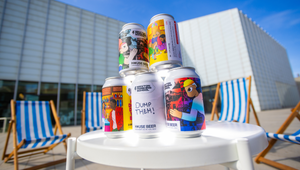
Social Media Influencer VS Celebrities

Brands have been using celebrity endorsements for years, using TV ads or social media campaigns to leverage publicity. Celebrities can cost brands millions to work with, but is this best use of their budget?
When the perfect combination of individual, brand and brief is achieved, social media influencers are much more powerful than celebrity endorsements. They have an incredibly loyal community who trust their recommendations, they engage with their community on a deeper, more personal level which in turn can have a much greater impact for your brand. Working with influencers may not reach the same numbers as celebrities, but numbers don’t equal engagement, conversation or an increase in sales. The audience exposure with influencers is much more targeted and meaningful - ultimately far more invaluable than mass reach.
Stats show that 79%* of consumers prefer influencer content to celebrity ads and endorsements. The level of trust is much lower, leading consumers to question the authenticity of a celebrity brand partnership… is the celebrity a genuine advocate of the product they are putting their name to? How much are they being paid for this collaboration? Would they genuinely recommend this brand or product to their friends? How much do they know about the brand and do their values align?
70%* of consumers say it is important for influencers to have a natural affinity and shared values with the brand they are endorsing. Social media influencers will not promote something unless they have tried and tested the product over a period of time and feel completely confident they would recommend it to their friends, family and followers. Think of influencers like your online BFF… whether you’re seeking advice on baby food brands, what to wear to a wedding, DIY hacks, fitness workouts etc - you don’t expect to be given bad advice, which is why influencers work hard to build TRUST and LOYALTY with their audience.
How do social media influencers and celebrities differ? Influencers are content creators in their own right. They have established an engaged audience through creating useful and relevant content tailored to their audiences’ needs - plus, they are someone you can trust and relate to. Celebrities are predominantly household names who appear on more traditional forms of media, may not necessarily engage with their audience and aren’t credible content creators. Of course nowadays the lines are blurred as most celebrities do have a social presence, however social isn’t their bread and butter so the content isn’t always fit for purpose. Also, sometimes the account is managed by their team so the personal connection and authenticity is nonexistent, unlike with influencers.
That said, bigger is not better… when influencers get over 1M followers they tend to go into the ‘celeb status’ box, which does sometimes negatively impact their role. Their world gradually becomes unattainable and their followers start to feel less able to relate and connect with them. The key selling point with influencers is their relatability. As there are so many influencers, they are representative of all society. The rise of the micro-influencer is evidence of this. Since the start of the pandemic, micro-influencers have seen engagement rates increase by an average of 130%* making them more appealing to brands. In fact 40%* of brands have collaborated with micro influencers over the past year.
10 years ago, ‘blogging’ was classed as a hobby, not a paid occupation. The likes of Instagram and Tiktok didn’t even exist. The rise of influencer marketing over the past few years is testament to the appetite amongst consumers for more relatable and attainable content. By 2022, the influencer industry is expected to be worth over $15 billion and 90%* of marketers state that influencer marketing results have been as good or better than pre-COVID-19, so I think we will be seeing more and more appetite for influencer partnerships and less for celebrity endorsements.
*Sources: influencer.com, Econsultancy, medium















